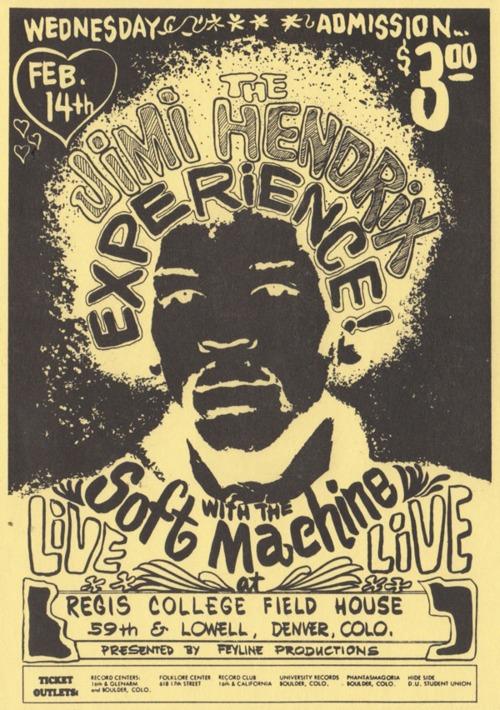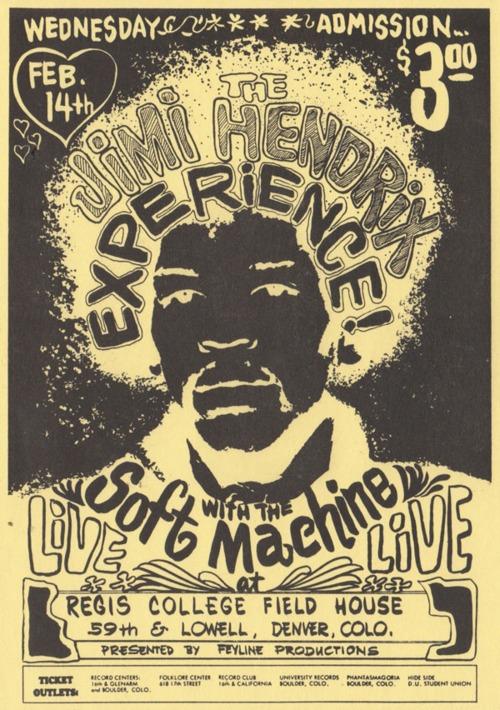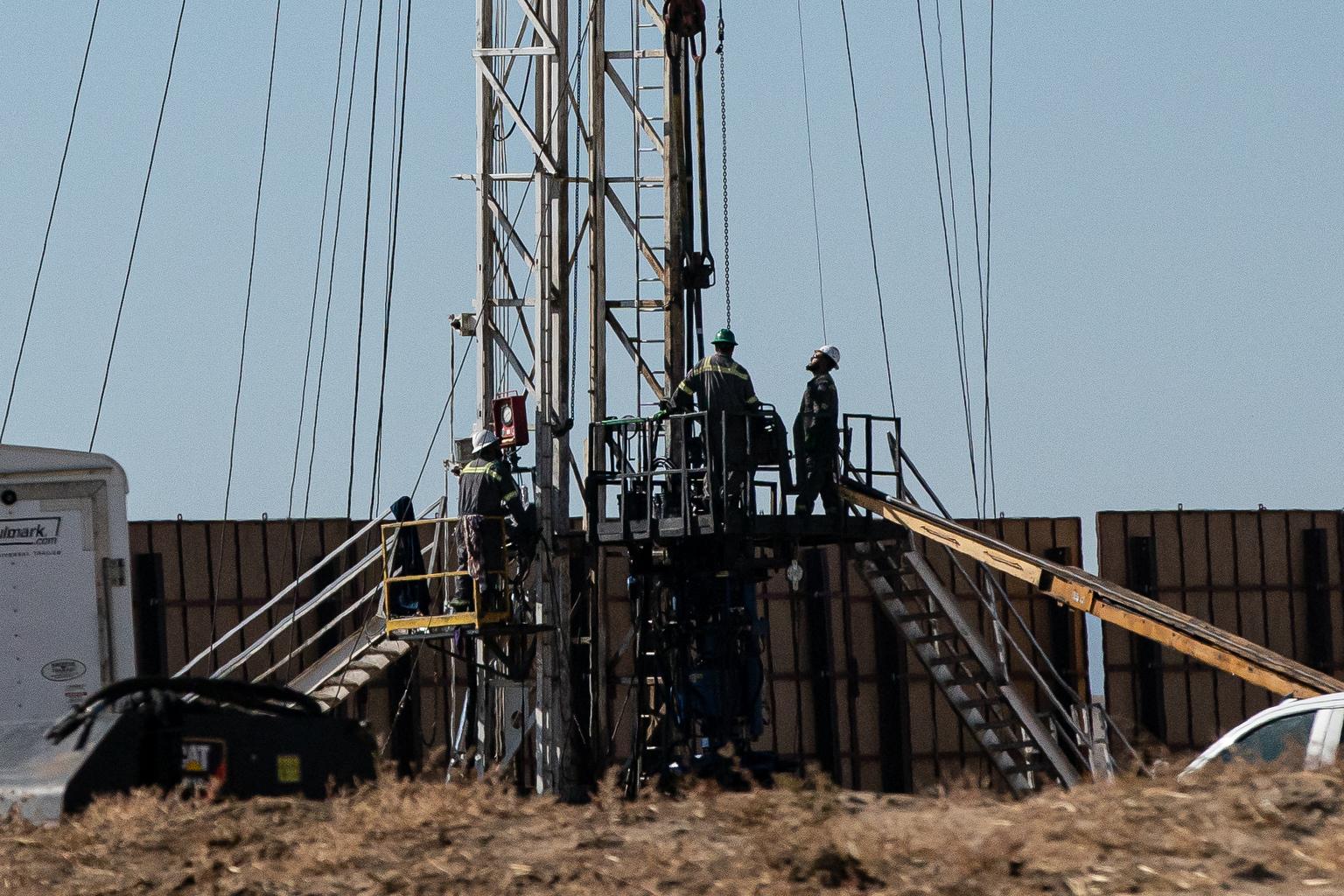

It’s considered one of the most tumultuous years in American history. In 1968, the Vietnam War was in full swing as was the antiwar movement and the rise of hippies in Colorado. Both Martin Luther King Jr. and Robert F. Kennedy were assassinated, and, through it all, rock and roll provided a fitting soundtrack.
Pop music, says Elisa Phelps, director of History Colorado’s collections and library division, reflected the social and political upheaval of the time. (The museum’s “1968 Exhibit” runs through May 10.) Think of bands like the Jimi Hendrix Experience, Cream, Big Brother & the Holding Company, the Byrds, and the Mothers of Invention. They all performed in Colorado that year.
Hendrix, for example, played a concert at Regis College Field House on Feb. 14. Tickets cost $3. A reviewer for the Rocky Mountain News wrote: “The Experience is where it’s at, whatever ‘it’ is. There is naked, uninhibited, exciting beauty. Would that those who refuse to recognize this beauty yet have a passion for the symphony would open their ears, minds, and hearts to the 120-decibel vibrations created by the Jimi Hendrix Experience and others in the same groove.”

After the concert, Phelps says, Hendrix went to a Denver club called the Family Dog, where he jammed with local musicians. The Family Dog was an offshoot of a similar club in San Francisco, so many of the same bands that played in the Bay Area would also perform in Denver. The late concert promoter Barry Fey booked shows at the club. Among the bands that played the Family Dog 1968 were Cream, Canned Heat, the Mothers of Invention, Big Brother & the Holding Company, Moby Grape, Blue Cheer, and the Byrds.
In 1968, Phelps says, Red Rocks Amphitheatre wasn’t used nearly as much as it is today for rock concerts, though Hendrix returned to Denver for a show there on Sept. 1. Earlier, on Aug. 4, Aretha Franklin was scheduled to perform at Red Rocks. However, because of a contract dispute, Franklin took the stage and announced that she would not be singing. About 200 concert goers stormed the stage, destroying musical equipment, lights, and a grand piano. “They wanted their Aretha, and they wanted their money back,” Phelps says. “They did not get their money back.”
On Dec. 26, a virtually unknown British band called Led Zeppelin played its first U.S. Concert at Denver’s Auditorium Arena, where the Buell Theatre is today. Promoter Fey was reluctant to add the group to the bill, even as an opener for Spirit and Vanilla Fudge. But he gave in, and the band caught the attention of the reviewer from the Rocky Mountain News. He called their music “blues oriented … hyped electric, the full routine in mainstream rock, done powerfully, gutsily, inventively and swingingly by the end of their set.” Singer Robert Plant, he wrote, was “a cut above average in style, but no special appeal in sound.”








